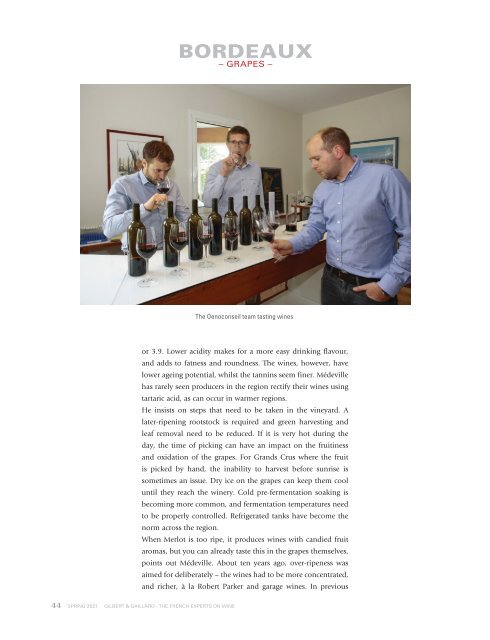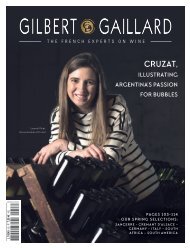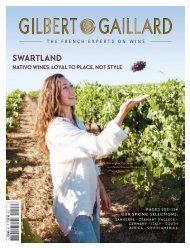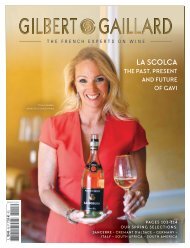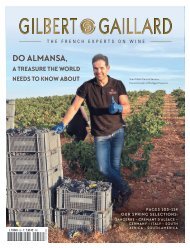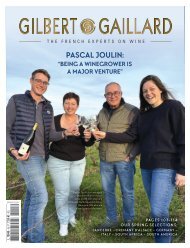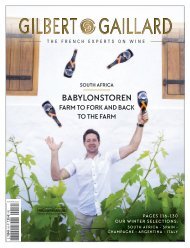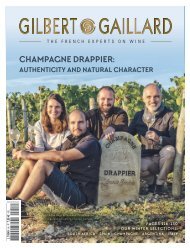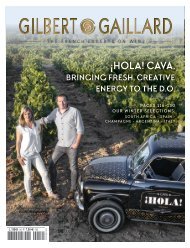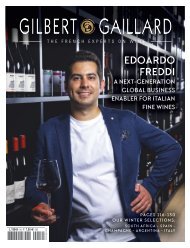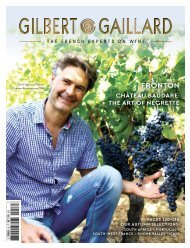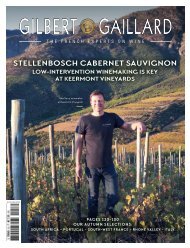You also want an ePaper? Increase the reach of your titles
YUMPU automatically turns print PDFs into web optimized ePapers that Google loves.
BORDEAUX<br />
– GRAPES –<br />
The Oenoconseil team tasting wines<br />
or 3.9. Lower acidity makes for a more easy drinking flavour,<br />
and adds to fatness and roundness. The wines, however, have<br />
lower ageing potential, whilst the tannins seem finer. Médeville<br />
has rarely seen producers in the region rectify their wines using<br />
tartaric acid, as can occur in warmer regions.<br />
He insists on steps that need to be taken in the vineyard. A<br />
later-ripening rootstock is required and green harvesting and<br />
leaf removal need to be reduced. If it is very hot during the<br />
day, the time of picking can have an impact on the fruitiness<br />
and oxidation of the grapes. For Grands Crus where the fruit<br />
is picked by hand, the inability to harvest before sunrise is<br />
sometimes an issue. Dry ice on the grapes can keep them cool<br />
until they reach the winery. Cold pre-fermentation soaking is<br />
becoming more common, and fermentation temperatures need<br />
to be properly controlled. Refrigerated tanks have become the<br />
norm across the region.<br />
When Merlot is too ripe, it produces wines with candied fruit<br />
aromas, but you can already taste this in the grapes themselves,<br />
points out Médeville. About ten years ago, over-ripeness was<br />
aimed for deliberately – the wines had to be more concentrated,<br />
and richer, à la Robert Parker and garage wines. In previous<br />
44 SPRING 2021 GILBERT & GAILLARD - THE FRENCH EXPERTS ON WINE


